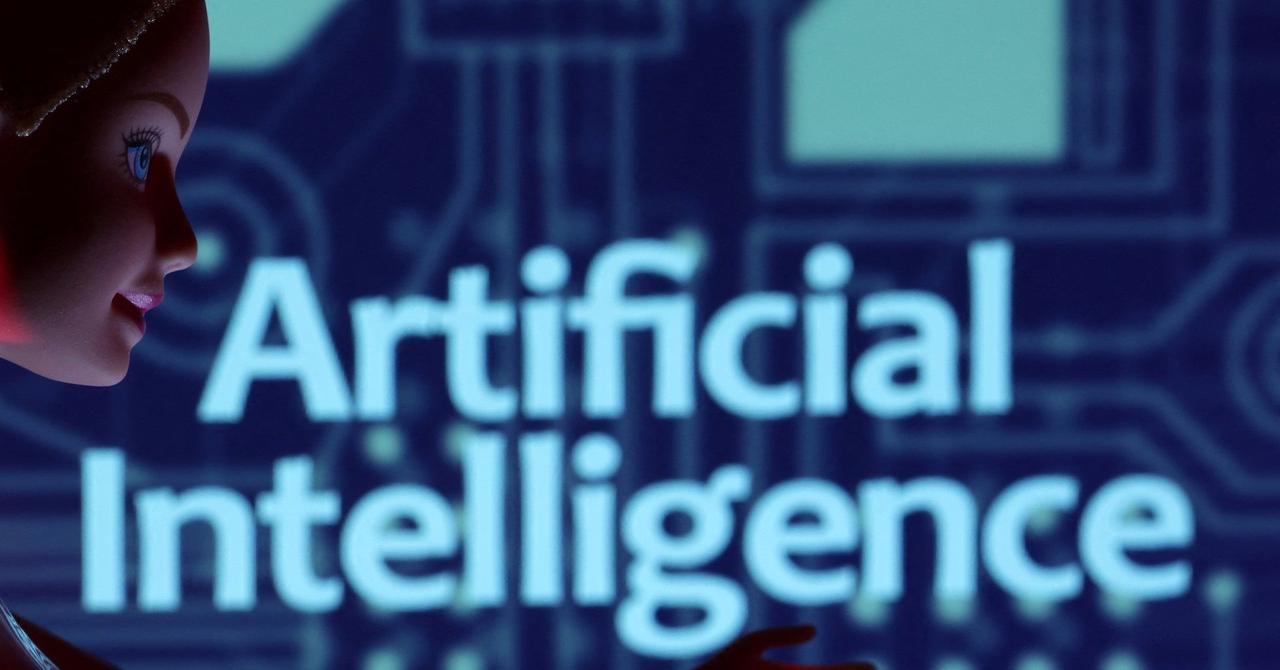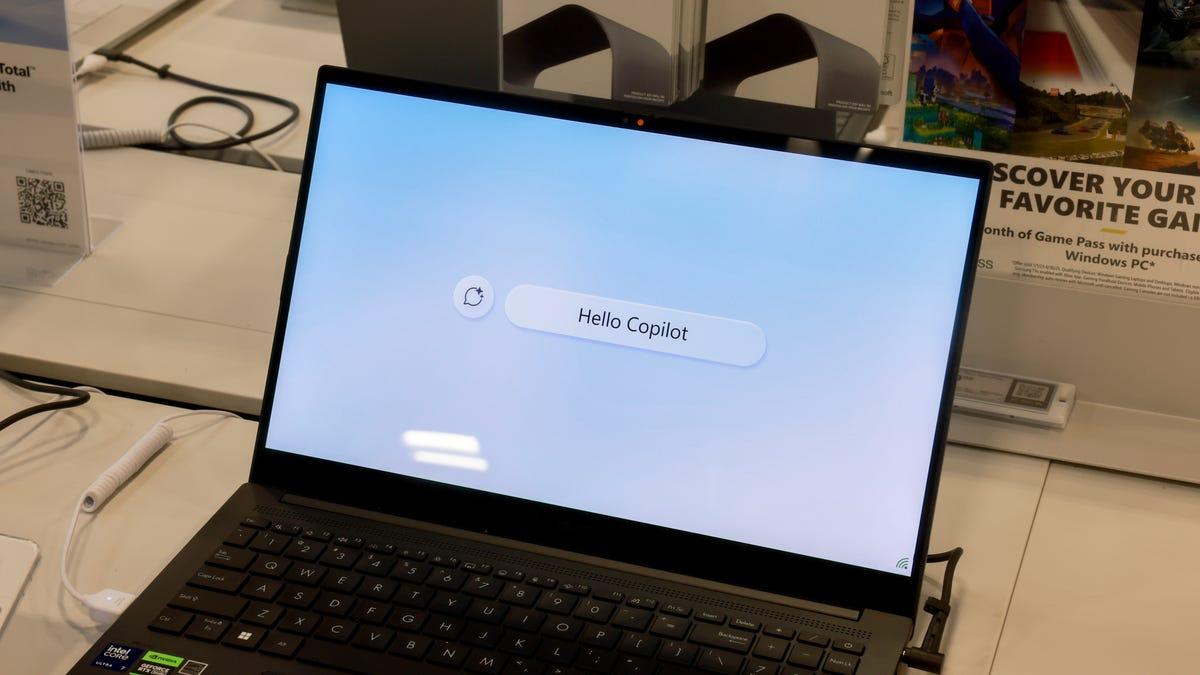AI Adoption in Manufacturing: Short-Term Pain, Long-Term Gain, Study Reveals
2 Sources
2 Sources
[1]
If AI doesn't kill your company, it will make it stronger, study shows
FRANKFURT, April 1 (Reuters) - If a company can survive the upheaval caused by the adoption of artificial intelligence, AI will help it thrive in the longer run, a study, opens new tab presented at a European Central Bank conference has found. Its authors, who used data from the U.S. Census Bureau and surveys covering the period between 2017 and 2021, found early adopters of AI in the manufacturing sector saw their productivity drop as they replaced human workers with robots. Their findings go against prevailing narrative suggesting that AI makes work more productive and "augments" jobs in many cases rather than automating them away. "In the short term, we see a lot of pain," Kristina McElheran, one of the authors of the paper, told the conference. She explained the drop in productivity as a side-effect of AI interfering with manufacturers' established practices, such as keeping low inventories. Over time, however, these firms began outperforming on all counts - sales growth, productivity and employment - provided that they managed to make it through the upheaval. "Surviving this seems like part of the problem," McElheran, a researcher at the University of Toronto, said. She said this rebound did not generally happen at older companies, which also tend to be larger, and "struggle to get this done". McElheran and colleagues worked on a sample of 30,000 firms among which AI adoption rose from 7.5% to 9.1% over the course of the study period. Introducing the conference earlier, ECB President Christine Lagarde had said between 23% and 29% of workers in Europe were highly exposed to AI but this need not herald a "job apocalypse" because new roles were likely to be created while old ones are destroyed. Reporting By Francesco Canepa Editing by Tomasz Janowski Our Standards: The Thomson Reuters Trust Principles., opens new tab Suggested Topics:Artificial Intelligence
[2]
If AI doesn't kill your company, it will make it stronger, study shows
Its authors, who used data from the US Census Bureau and surveys covering the period between 2017 and 2021, found early adopters of AI in the manufacturing sector saw their productivity drop as they replaced human workers with robots.If a company can survive the upheaval caused by the adoption of artificial intelligence, AI will help it thrive in the longer run, a study presented at a European Central Bank conference has found. Its authors, who used data from the US Census Bureau and surveys covering the period between 2017 and 2021, found early adopters of AI in the manufacturing sector saw their productivity drop as they replaced human workers with robots. Their findings go against prevailing narrative suggesting that AI makes work more productive and "augments" jobs in many cases rather than automating them away. "In the short term, we see a lot of pain," Kristina McElheran, one of the authors of the paper, told the conference. She explained the drop in productivity as a side-effect of AI interfering with manufacturers' established practices, such as keeping low inventories. Over time, however, these firms began outperforming on all counts - sales growth, productivity and employment - provided that they managed to make it through the upheaval. "Surviving this seems like part of the problem," McElheran, a researcher at the University of Toronto, said. She said this rebound did not generally happen at older companies, which also tend to be larger, and "struggle to get this done". McElheran and colleagues worked on a sample of 30,000 firms among which AI adoption rose from 7.5% to 9.1% over the course of the study period. Introducing the conference earlier, ECB President Christine Lagarde had said between 23% and 29% of workers in Europe were highly exposed to AI but this need not herald a "job apocalypse" because new roles were likely to be created while old ones are destroyed.
Share
Share
Copy Link
A new study presented at a European Central Bank conference challenges the prevailing narrative about AI's immediate benefits, showing that early AI adopters in manufacturing face initial productivity drops before experiencing long-term gains.

AI Adoption in Manufacturing: Initial Challenges and Long-Term Benefits
A groundbreaking study presented at a European Central Bank conference has shed new light on the impact of artificial intelligence (AI) adoption in the manufacturing sector. The research, which analyzed data from the U.S. Census Bureau and surveys between 2017 and 2021, reveals a complex picture of AI integration in businesses, challenging the prevailing narrative of immediate productivity gains
1
.Short-Term Productivity Decline
Contrary to popular belief, the study found that early adopters of AI in manufacturing experienced an initial drop in productivity as they replaced human workers with robots. Kristina McElheran, one of the study's authors and a researcher at the University of Toronto, explained, "In the short term, we see a lot of pain"
2
.This productivity decline was attributed to AI disrupting established practices, such as maintaining low inventories. The findings challenge the common perception that AI immediately enhances productivity and augments jobs rather than replacing them.
Long-Term Performance Improvements
Despite the initial setbacks, the study revealed a silver lining for companies that successfully navigated the AI adoption process. Over time, these firms began to outperform their peers in several key areas:
- Sales growth
- Productivity
- Employment
However, McElheran emphasized that survival through the initial upheaval is crucial, stating, "Surviving this seems like part of the problem"
1
.Challenges for Older and Larger Companies
The study highlighted that older companies, which tend to be larger, struggled more with AI adoption and were less likely to experience the rebound effect. This suggests that established firms may face greater challenges in adapting to AI-driven changes in their operations and business models.
Related Stories
AI Adoption Trends
The research, based on a sample of 30,000 firms, observed an increase in AI adoption from 7.5% to 9.1% during the study period. This trend indicates a growing interest in AI technologies across the manufacturing sector, despite the initial hurdles
2
.Implications for the European Workforce
European Central Bank President Christine Lagarde, while introducing the conference, noted that between 23% and 29% of workers in Europe are highly exposed to AI. However, she emphasized that this exposure does not necessarily herald a "job apocalypse." Lagarde suggested that while some roles may be eliminated, new positions are likely to be created as AI transforms the job market
1
.This study provides valuable insights for businesses considering AI adoption, highlighting the need for careful planning and resilience to overcome initial challenges and reap long-term benefits in the AI-driven future of manufacturing.
References
Summarized by
Navi
Related Stories
AI's Impact on the Job Market: More Retraining Than Layoffs, For Now
05 Sept 2025•Business and Economy

AI's Impact on Workplace Productivity: Minimal Effects Despite Rapid Adoption, Study Finds
20 May 2025•Business and Economy

AI's Impact on Worker Well-being: Early Study Reveals Surprising Benefits and Cautionary Notes
23 Jun 2025•Science and Research

Recent Highlights
1
ByteDance's Seedance 2.0 AI video generator triggers copyright infringement battle with Hollywood
Policy and Regulation

2
Demis Hassabis predicts AGI in 5-8 years, sees new golden era transforming medicine and science
Technology

3
Nvidia and Meta forge massive chip deal as computing power demands reshape AI infrastructure
Technology





